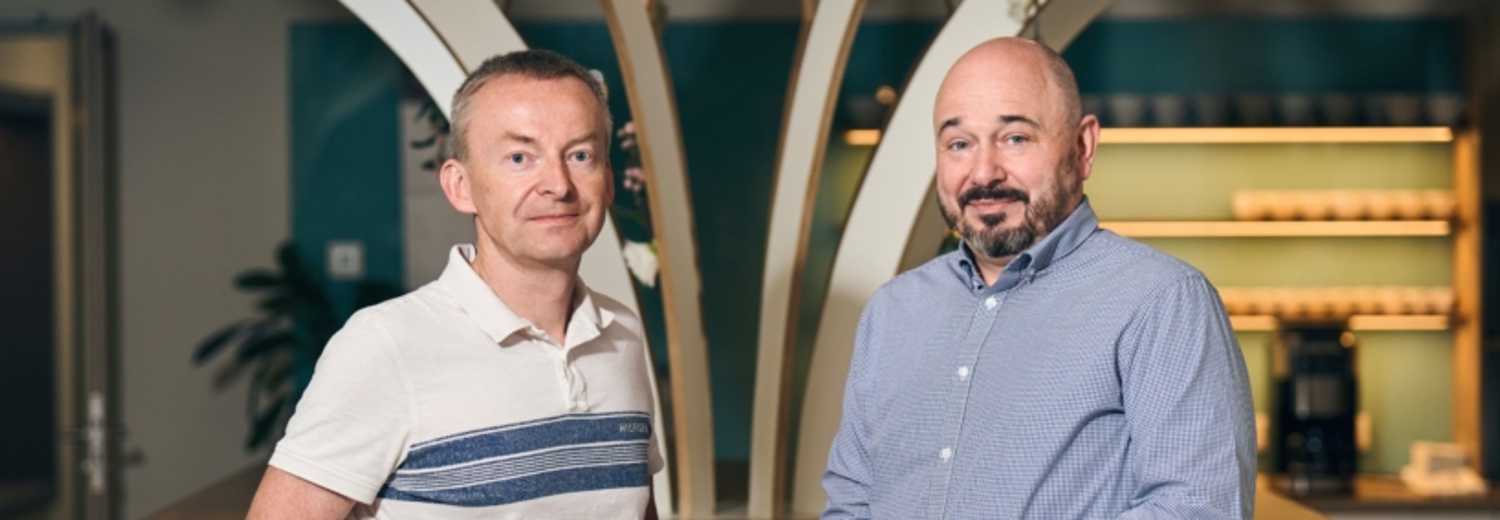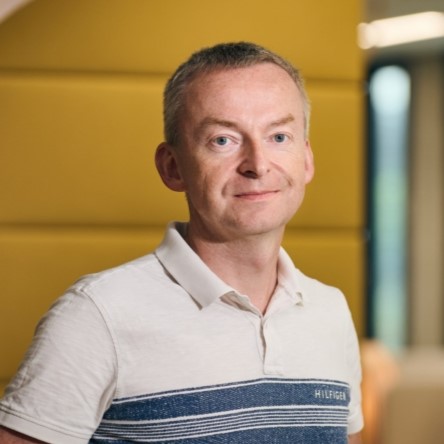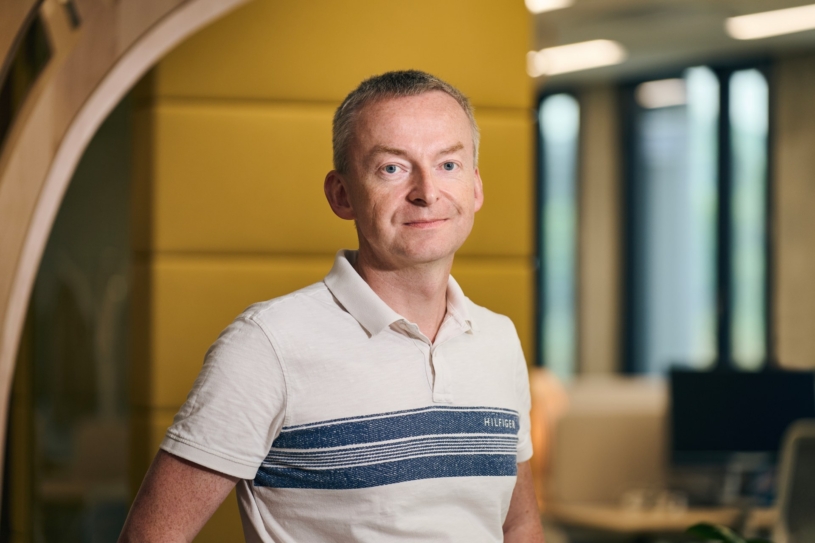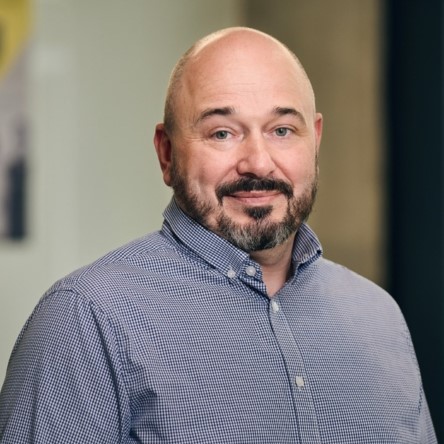Czech banks promote startups led by Revolut. Qinshift helps modernize their services

The technology company Qinshift, formerly Cleverlance, offers Czech and global banks a range of tools for a truly digital future.
Internet banking was just the beginning. Then came the wave of digitization of paper documents, the advent of mobile banking, and today, not only in our country, banks are beginning to perceive digital operations as the central axis of everything. In addition, many banks are counting down to the next evolutionary leap — the general replacement of the thirty-year-old accounting systems that lie at the heart of their infrastructure with a new, fully digital one. And with it comes massive sensitive software development.

Jiri Voldan
Jiri Voldan Director of Delivery, BFSI at Qinshift via Czech Crunch
“Changes in the banking world are so fast that banks have learned to work agilely and break down their huge systems into smaller, independent components. The individual teams that take care of them can thus easily adapt and expand them according to ongoing needs," says Jiří Voldán, head of Qinshift's pillar focused on providing solutions for clients in banking, insurance, and other financial services. "
"Unfortunately, I cannot name our clients directly, but whether we are speaking of a mobile bank or an entire digital platform, we have a stake in the development of every well-known bank in the Czech," he adds.
Qinshift was established as a consulting technology company in March 2023 after long-standing Czech technology brand Cleverlance was renamed. Cleverlance was one of the leading Czech suppliers of IT services and information systems, especially in the fields of finance, telecommunications and automotive. Today, Qinshift forms part of the technological pillar of Karel Komárek's KKCG investment group.
Qinshift was incorporated in 2018 and now operates all over the world. It currently employs over 3.5 thousand people and its aggregate annual sales in 2023 amounted to EUR 200 million. The group also includes another technology company, Avenga, which KKCG acquired at the end of 2023. Originally a German enterprise, Avenga has over 31 branches worldwide, employs 3,800 people and holds a strong position primarily in healthcare development, but also in the banking and insurance sectors.
"The strategic integration of Qinshift and Avenga is high on the agenda, as the two companies will appear under a single brand starting in 2025. However, the final form of the merged brand has not been decided yet, and we will see it take shape over the course of this year," hints Jiří Voldán about the future of the group.
Qinshift and Avenga focus on application development, while companies from the sister group Aricoma complement the offer with IT services for infrastructure and cybersecurity.
Startups have ignited a new generation of banking
The digital "earthquake" in regulated banking is coming a little slower than in online sales, for instance, but it is happening. The emergence of the banking identity and an ever-increasing percentage of users who have no difficulty controlling their bank accounts on their mobile phones or smart watches are only the most vivid examples. The trend is towards a reality where almost everything is handled digitally, and at least in the Czech context, this seems to be successful.
After all, most Czech banks were listed in the ranking of digitally mature banks published by Deloitte.
"Recently, I tried to open an account with about ten banks and none of them tried to rush me to a branch, everything was done online. But that wasn't the case until two years ago," Jiří Voldán from Qinshift illustrates the speed of change based on his recent experience.
Changes in global banking were accelerated by the advent of digital banks such as Revolut, which began to approach banking and financial services differently. For example, they did not develop expensive and cumbersome internal systems for issuing and managing payment cards, but rented them as a service from third parties that focus on this area.

Jiri Voldan, Director of Delivery, BFSI at Qinshift via Czech Crunch
In practice, this works in such a way that when a new account is opened, a card is issued, which goes to the customer. A month before the end of its validity, a new card arrives — and none of this is handled directly by the bank, the selected partner takes care of everything. According to Jiří Voldán, today any financial company just needs to properly implement third-party services for payments, loans or insurance and focus on a unique customer experience. In the case of Revolut, this is an elaborate, but essentially ordinary mobile application.
"Most Czech banks operate on encapsulated central systems that were created in the 1990s, and some even in the 1960s. Today, they are being replaced by surprisingly light solutions, which are often delivered in the form of cloud services. At the same time, they are ready for integration with third-party services," Voldán describes how fintech startups forced the financial market to undergo a radical transformation.
"Today, digitization has penetrated even deeper, and this is beautifully demonstrated, for example, by the creation of the George service from Česká Spořitelna Bank. The entire bank was transformed to create a new generation of banking front-end. And other players are taking the same path," adds Voldán. Komerční Bank, for example, is experiencing an extensive transformation and transition to a new core system.
The central systems of Czech banks were created in the 1990s, and some even in the 1960s.
In addition to most Czech banks, Qinshift's clients also include financial companies in many European countries and the USA. Thanks to the gradual merger with Avenga, it also operates in a number of countries in South America and Asia. According to the head of its financial pillar, cooperation with consultants opens the door for clients to the broad know-how and experience of experts who have worked on similar projects for a number of similar clients — thanks to this, they understand the functioning of specific financial processes and are able to anticipate needs down to the smallest detail.
Bank in four months
"Banks today already know how to develop in an agile way, and in us they will find a team to whom they do not have to explain how channel applications or payment systems work. When you have six corporate banking apps, you'll create a seventh one twice. We recently built the entire bank in four months, the client only had to purchase a central accounting system, we took care of the rest of the services," Voldán describes Qinshift's experience.
According to him, one of the currently most requested specializations is the development of applications containing embedded transactions, where several services are connected in one process for the convenience of the user:

Martin Patak
Director of Delivery, Testing Services via Czech Crunch
"An example could be the sale of a new car. One cannot buy it online and simply pay with a card. But I can go to the website, put together a configuration, have leasing and insurance calculated and pay the liability insurance straight away with the first installment. Concluding an online purchase contract, leasing and insurance are three transactions typically provided by three different companies. Today, however, from the user's point of view, they often take place within a single process."
According to Voldán, the creation of channel applications for mobile or internet banking, and now also for smart watches, is close behind in popularity.
"In addition to applications for banking or mortgage solutions, we offer companies from small to enterprise size payment management systems, including their matching or PSD2 support. We deal with payment cards, investment platforms, factoring and can also help with regulatory requirements, such as KYC and AML obligations," says Voldán.
The development of complex financial solutions also brings considerable risk.
"A small error in development can cost the client millions, which we cannot afford as a supplier. One of the most important activities for the wave of digitization linked to the generational change of banking systems will be testing. And not just tests before the software is handed over to the client, but already during agile development," explains Martin Paták, who is behind a team of five hundred testers and analysts at Qinshift.

Martin Patak, Director of Delivery, Testing Services via Czech Crunch
It is precisely the testers who look for any loopholes and shortcomings in solutions for banks, operators and car manufacturers that could cause problems in the future. Testing comes into play long before the first line of code. It is already part of the project preparation, in the framework of which Qinshift and the client will determine the strategy for testing or the percentage of functions they will test, or which of them they will automate.
"Together with business requirements and technical documentation, scenarios for testers are created. A huge number of functions need to be verified within one solution, because, for example, telephone operator systems are often connected to two hundred other commonly used subsystems. They all have to work together and we need to understand when testing integrations," adds Paták.
At Qinshift, they therefore work intensively with artificial intelligence (AI) during testing, which helps them on three levels. The first one is the generation of scripts and scenarios according to which the application is tested. "We can accept 85 percent of the generated materials, which saves hours of work, on average I would estimate the financial savings at half. Thanks to this, it is worth automating even tests that were previously done manually. And the interesting thing is that in this way the artificial intelligence itself designs test procedures, which are subsequently carried out by other AIs," adds Paták.
With AI we save hours of work. On average, I would estimate the financial expenditures to be halved.
Artificial intelligence in Qinshift is also supported by the use of Microsoft Copilot, which checks emerging code with developers. But the new technology also addresses the automation of the test execution itself, as well as a perennial problem of all developers, namely the creation of test data.
“In order to test a robust banking application, we need to have a large amount of client and transaction data in the system that looks genuine but is not genuine, so as not to interfere with protected client data. When using an AI solution in a secure environment, filling the test environment with relevant data is a matter of minutes," says Paták.
According to him, despite the significant power of artificial intelligence, technology still plays the role of a helper that makes people's work easier, but the outputs must still be controlled by a person and the tools must be appropriately incorporated into their work.
Qinshift testing offers clients complete or partial takeover of testing in the form of TaaS (testing as a service) as part of software deliveries. According to Paták, this is a service that will be especially appreciated by companies that want to outsource testing or, on the contrary, solve larger software projects once in a while: "TaaS can be a suitable option, for example, in the case of a fundamental upgrade of one of the critical systems, which in our industries cannot be done without dozens up to a hundred testers. Changing old banking systems, which have been employed for over thirty years in the Czech Republic, and sometimes even for over sixty years in Europe, can be exactly such a project, since there is no documentation for them, and their replacement will be a huge challenge for banks."
